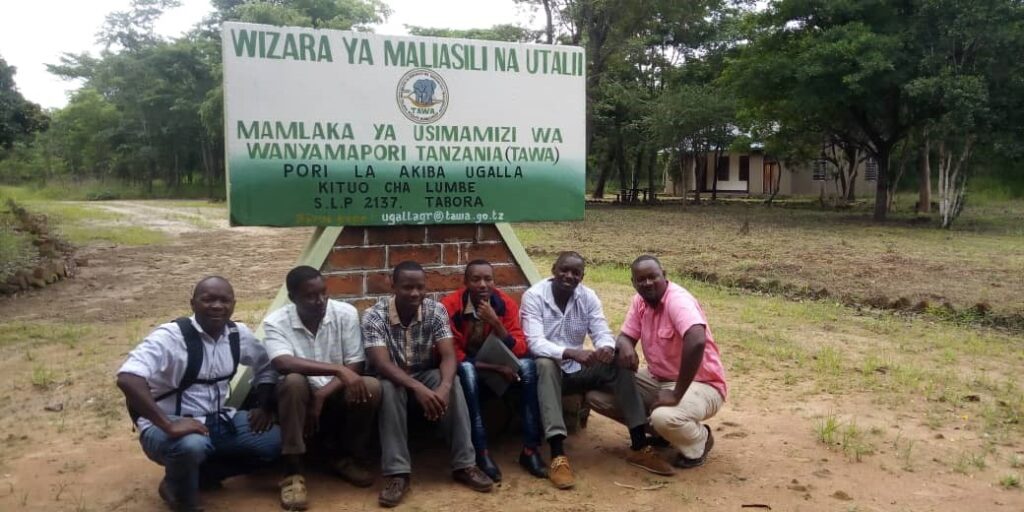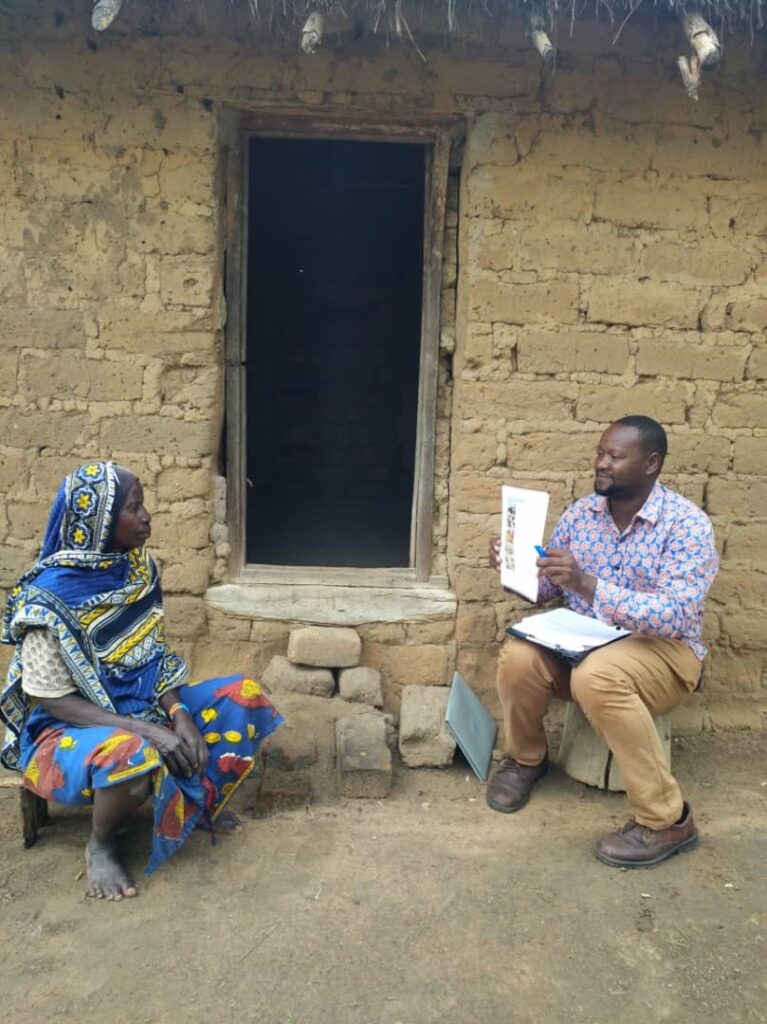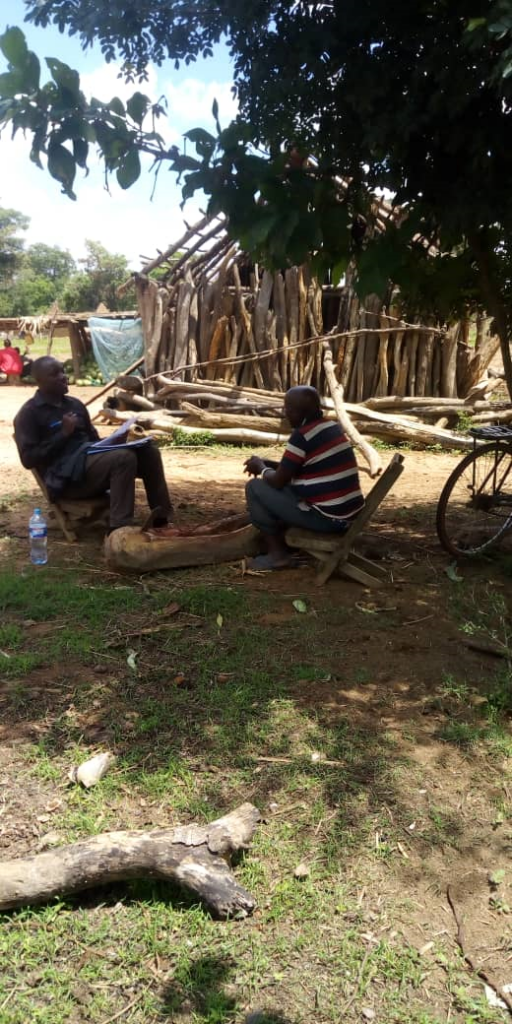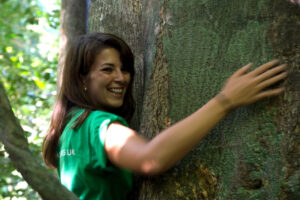University of Oxford
11a Mansfield Rd
OX1 3SZ
UK

General introduction
In many fieldwork-based conservation studies, things do not go according to plan. A great many research projects in conservation circles generate positive or negative results or both which make significant contribution to knowledge and conservation practice. However, almost all the time we learn from the outputs of such projects through journal papers, books, reports, power-point presentations, conservation magazines, research briefs, etc. which do not necessarily discuss all the issues that researchers experience on the way to producing their results. Nevertheless, if we could gain sufficient insights into fieldwork environments and experiences, this could make a significant contribution to data collection activities in the following ways:
- To be more realistic when planning for fieldwork especially in the areas of methodology, budget, and ethics.
- To save time and money by anticipating potential challenges or problems and preparing for them well in advance.
Here, we share our fieldwork experiences, and the lessons we could learn from them, from an ongoing conservation study in the Ugalla ecosystem of western Tanzania. We were involved in the first phase of the data collection from 25 November to 23 December 2020, which was preceded by a 3-days pilot study. We conducted around 550 household interviews in 8 villages, and our story continues in the subsequent sections:

Data collectors at a ranger outpost in one of the study villages located less than 200m from the Ugalla Game Reserve boundary, 2020.
Data collection permissions
To collect data in Tanzania’s rural areas, one must obtain a permission letter from the District Executive Director. This letter introduces the data collector to the Village Executive Officer (VEO, appointed by the District Executive Director) and also directs the latter to provide the necessary cooperation to make the data collection exercise a success. So, we smoothly obtained data collection permission letters from all our target districts except one where it took us somewhat longer than expected to get a permission letter because the officials were attending a number of meetings. Unlike other districts, we spent two days to get the letter but still on the day we were told we could get it, we went to the relevant office at the district headquarters during the early morning hours (at 9:00 am) only to discover that we had to wait for at least 9 hours. This resulted in the extension of the timeframe for the data collection plan, which in turn resulted in additional field costs.
Take-home lesson:
We need to get permissions before we work. Nevertheless, there will always be delays, plan for them both in terms of time and money.
Local assistants
VEOs appointed local people (local assistants) to give directions and introduce us to the households in our sample. We had a total of 24 local assistants (3 in each village; 1 assistant for 2 data collectors). Ideally, we were supposed to have 6 local assistants, one for each data collector, but this would cost us a lot more as the assistants demanded payments each day they worked with us. Of the 8 study villages, we were asked by VEOs in two villages whether we had planned to compensate the local assistants for their time. In the other 6 villages, the assistants asked for compensation themselves. Anyway, we did pay each local assistant T.Sh. 5,000 (about £2) per day, but still some, like 10 assistants, thought that this amount was relatively small.
At times some of our local assistants attempted to deliberately take us to households they preferred and not the ones we wanted to visit based on our sample. For example, they wanted us to interview their friends, relatives, neighbours, and people of their own tribes. We discovered that this was caused by the fact that the assistants felt fatigued especially when we had long working hours and the houses were far apart, and that they needed to please us by choosing people whom they thought could easily give us their consent or participate actively in the interview or give us the best answers. For example, one local assistant said; ‘I have a feeling that you are looking for households who farm tobacco, and I know them’. Additionally, some of the assistants wanted to listen to the interview, others attempted to dictate when to work, when to rest, and when to eat lunch. To overcome this, we double-checked the households against our sample by asking the respondent in private before starting the interview. We also made sure that the local assistants followed our instructions and not the other way round.
Take-home lesson:
Make sure expectations are understood clearly in advance, by everyone. And don’t tire the local assistants out.
Finding respondents
We conducted data collection during the farming season, and villagers were busy with farm work. Finding respondents was a little hard as most of them woke up early in the morning to work their farms. Therefore, for those who did not find time to participate in the interview in the morning we visited them in the afternoon. Some respondents were afraid of us, so we had to do everything possible to combat this fear and calm them down with the help of our local assistants. For example, members of one household hid when they saw two of the data collectors approaching their place; the data collectors had to make an effort to find them. In another household, the husband ran away on his bicycle upon seeing a data collector, leaving his wife. Fortunately, the wife consented to participate in the interview.
Take-home lesson:
Households differ in the way they perceive strangers. But, in general, they feel safe and comfortable around data collectors when they see someone familiar to them. Therefore, always work with people familiar to the study area (local assistants) and, where necessary, let them go to the household first before you.
The consent
As part of the data collector’s ethics protocol, it is vital to obtain respondent’s informed consent prior to the commencement of any household interview. In our case, immediately after greeting the household we asked for their consent to carry out a brief interview with the head of the household. Our consent statement was short and contained a few words to let the respondent know that we were not connected with any conservation authority, and ensure them that the interview will be confidential and anonymous, and they were free to withdraw or choose not to answer any question. Regrettably, these words were not enough to earn us respondent’s consent. We had to do a lot more before a respondent gave consent depending on their literacy levels, ethnicity, language barrier, and the feelings of unease and worry. For example, some households gave consent with the condition that we did not talk to their head in private. In such situations we explained in detail why it was important for us to have private conversation with the respondent.
We interviewed people of a certain tribe who had a custom that no male stranger should talk to their wives unless the husband or eldest son permitted it. If the husband was not around or could not be reached the eldest son would represent him. If both were not around then consent could not be expected. We experienced this in one occasion where a data collector was refused consent because the father was not around and his wife did not speak Swahili (the main language in Tanzania and the one we used in our household survey) even though she was allowed to talk to the data collector. Further, the local assistant did not understand the language spoken by the household and the other household members who knew Swahili refused to take part in the interview because their elder brother was also not around.
Take-home lesson:
The things we are required to do for our university ethics consent process are not enough. We should be prepared to give additional explanation of the rationale for our work or take a flexible approach to seeking consent depending on the household environments. Furthermore, use local translators to better communicate with respondents, especially for households which do not speak the language used in the interview.

Data collector using the Unmatched Count Technique to ask about illegal bushmeat hunting in western Tanzania, 2020. Appropriate consent was obtained before taking this photograph.
The interview
After obtaining consent, the interview session lasted about 35-45 minutes. We were 6 data collectors, and each interviewed 5-6 households per day depending on the distance between households, the availability of the respondent, the pace of the enumerator, and the ability of the respondent to understand the questions, and the language issues. We learned from the pilot study that most respondents felt comfortable responding to the question if they understood it.
We experienced a few unexpected obstacles during the interview session, though. For instance, at times about halfway through the interview respondents remembered that they were not done with cooking. Therefore, they looked pressed for time to the extent that the enumerator was forced to temporarily halt the interview to let the respondent finish cooking and then resume the interview at a later time even if there were other household members around who could do the cooking. In other households, when a relative or a friend paid a visit, the respondent would leave us for a chat with the visitor and return later to continue the interview. When such chats took longer, we carefully persuaded both the respondent and the visitor to allow us to continue with the interview, again emphasising the importance of interviewing the respondent in private.
Take-home lesson:
Let the respondent know in advance how long the interview could last. From our experience, we recommend that the face-to-face household interview should not take more than 30-40 minutes.

Data collector conducting household interview in western Tanzania, 2020. Appropriate consent was obtained before taking this photograph.
Other experiences
Our fieldwork was an enjoyable and unforgettable experience with interesting and thought-provoking challenges as described above, but we felt that this blog cannot be complete without mentioning these three last events. First of all, in one of our study villages, a data collection day started off sunny, and the weather was generally nice. In the evening when we were on our way back from the village after work, the weather changed and suddenly it started to rain heavily and peanut-sized hailstones poured down. There was nowhere to hide from the rain and we had no umbrellas, so we got drenched to the skin; luckily, we had our paper questionnaires in small waterproof bags. Second, some of our study villages were close to protected areas and every night we could hear the sounds of animals especially the giggling sounds of hyenas. This produced a great excitement among us, and fear at the same time because during the afternoon we were supposed to move through small bushes and farm fields to get to households, which were relatively far from each other, thinking we would encounter wild animals. And lastly, due to transport problems in rural areas, one day, we were forced to board a small commuter bus at around 10 pm at night as we desperately needed transport. Surprisingly, the headlamps were not working, and the driver was using one of the dim side lights and a small handheld torch to light the road ahead of him for a 43 miles journey. The journey was a nightmare because it was almost dark in front of us, and the driver was driving nervously at inconsistent speed.
Genera lessons
- Data collection activities involve hard work and encountering different challenging environments. To minimise unnecessary challenges and improve the quality of data, piloting or pre-testing survey questionnaires and methods cannot be overstated. Do not start formal data collection before fine-tuning the questionnaire and research plan based on the pilot study.
- Realise that we are strangers at our study area and some respondents may not be happy with us visiting their households and interrupting their daily activities. With that in mind, always behave as professionally as possible; respect our respondents and show them that we care about what they are doing, their decisions, how they see us, and what they think about what we are doing.
- Do not rush. Give respondents enough time to think, understand, and remember things. Realise that we are the only one who understands the questions.
- Depending on the situation at the time of asking for respondent’s consent, take time to calm respondents down, assure them that we are doing an academic exercise and briefly tell them how important our work is; but please do not promise anything which you or any other data collector/researcher may not be able to deliver, to avoid raising expectations.
- In general, be as flexible as possible but always stick to the principles. Consequently, time spent thinking things through when doing your ethics and health and safety forms, and talking to people who have done similar type of work before, particularly in similar places/circumstances, will be time well spent.
Acknowledgements
The Rufford Small Grants Foundation supported this fieldwork. We are grateful to Sikonge, Urambo, and Kaliua districts for permissions to collect data in villages.
Contacts
faustinejohn370@gmail.com
ngurebaraka@yahoo.co.uk
mnyangaz@gmail.com
nphilipo@ymail.com
wilfredyaudiphace48@gmail.com
paulo.wilfred@yahoo.co.uk

